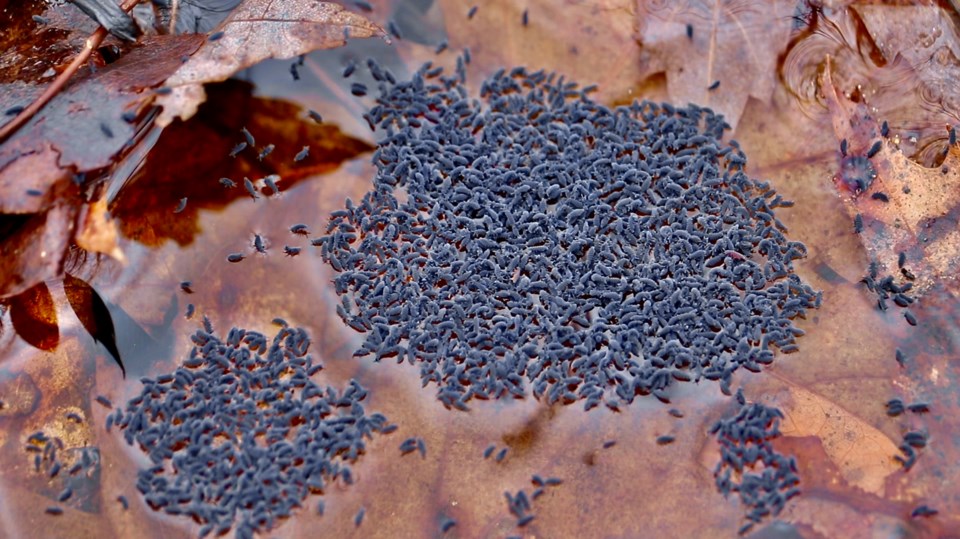A PG Conversation About The Birds and the Bees
Holidays are full of conversations. I hope you had some enlightening ones, and relished the opportunities to speak with others about our daily lives and deeper thoughts as the planet circumnavigates the sun yet again. Happy New Year, Niagara-on-the-Lake Local readers! It has been a pleasure to write for you during all of 2022 and beyond.
Statistically speaking, when we find extra time to communicate and share ideas with our fellow humans, a lot more interesting conversations come up. For me this year, a handful of my holiday chats both directly and involuntarily sparked some deep thoughts about what other animals, like our dogs, my pet gecko, deer or horses think about the holidays. Which, of course, are an entirely fabricated human construct.
I heard celebratory and heartwarming stories of people who are about to embrace a new child coming into their world. My biology brain is inclined to think, well, this is mating, for people.
With a humanized aspect to it, reproduction is perceived as something agreed-upon between two people, typically with love, and a centralized goal of a beautiful and emotional addition to someone's life.
Let's keep it PG but biologically inquisitive for a moment here. Imagine you are an insect.
I must ask, what two people look each other in the eye and say, “Babe, we need to bring a new life into this world to sustain the human population. I would like to have as many spawn as possible to ensure that our species remains strong and endures, even if most die. I need you to help pass on my genetics, even if we never see how the kids turn out.” Yeah, right. Okay, well, to each their own.
But seriously, if one of the basic principles of being a living thing is reproduction, what goes through a cicada's, a toad's, a fish's, or a black bear's mind when they mate — and afterwards? It's worth the question, because they all do it, and Earth is the only planet on which this marvel occurs.
Let's stick with insects, the most numerous and biodiverse group of organisms on the planet.
By the way, not all insects are bugs, but all bugs are classified as insects. A true bug is merely a type of insect who contains piercing and sucking mouthparts for nutrients. This includes cicadas, aphids, leafhoppers, planthoppers, and even bed bugs — but totally excludes butterflies, ants, wasps and beetles. So next time you want to call any six-legged creature a bug, think twice.
Thinking twice, what goes through a bug's mind, body, and soul as they engage in reproduction? Can we scientifically quantify that the bugs, or even we humans, have souls? Do they feel love? We may never truly know, but the science says they just have sex. However, this clearly happens for some reason.
Not to feel selfishly ecstatic. Not to feel a powerful release. Not to feel protected, warm, or secure. Not for payback, not for love, and not for sale. They have sex to survive. If there’s no apparent libido in animals other than ourselves (except arguably among higher primates and dolphins), then what makes them tick? Instinct is a reasonable answer, but do they know that they need to survive? And why they need to survive? What is the mysterious, unforeseen force behind this, I wonder.
The most logical explanation for this is that the vast majority of animals come hard-wired with thousands of years of DNA blueprint, simply instructing them that it is time to reproduce by means of environmental cues. But making a new life is stressful for all animals, as it is energetically taxing and socially competitive. So why do animals who don't love their children forever, let alone some who die moments after reproduction (like praying mantises and mayflies), even bother?
Evolution has steered certain animals and plants into a world of unmistakable hints that it is time to procreate, including temperatures, longer days of sun, plentiful food, high water flows, or stable weather conditions.
It begs a deeper question, though. What is the purpose? Can any parents out there imagine not being able to see the results of your children growing and succeeding in the world? Yet we are one of the few species who not only emotionally, but dare I say spiritually, often seek this.
A black bear raises her cubs as they grow older and stronger and eventually walk their own path in the world's forests. One may argue that such animals could be sentient and emotionally charged, like a person, giving a more profound sense of purpose to reproduction. Let's contrast that to the salmon who lays her eggs in the gravel beds of our local creeks, only to roll over, bloat, and die just days later.
From the birds to the bees to ourselves, we can all agree that there is a unifying and evolutionary drive to reproduce. To me, it is as biologically understandable as it is wildly mysterious that it only happens on the third rock from the sun, which we just spun around all over again.
With a biology background and as a literal thinker, I can't help but flirt with the idea that there are unique themes in the world of nature that we will never fully understand.



